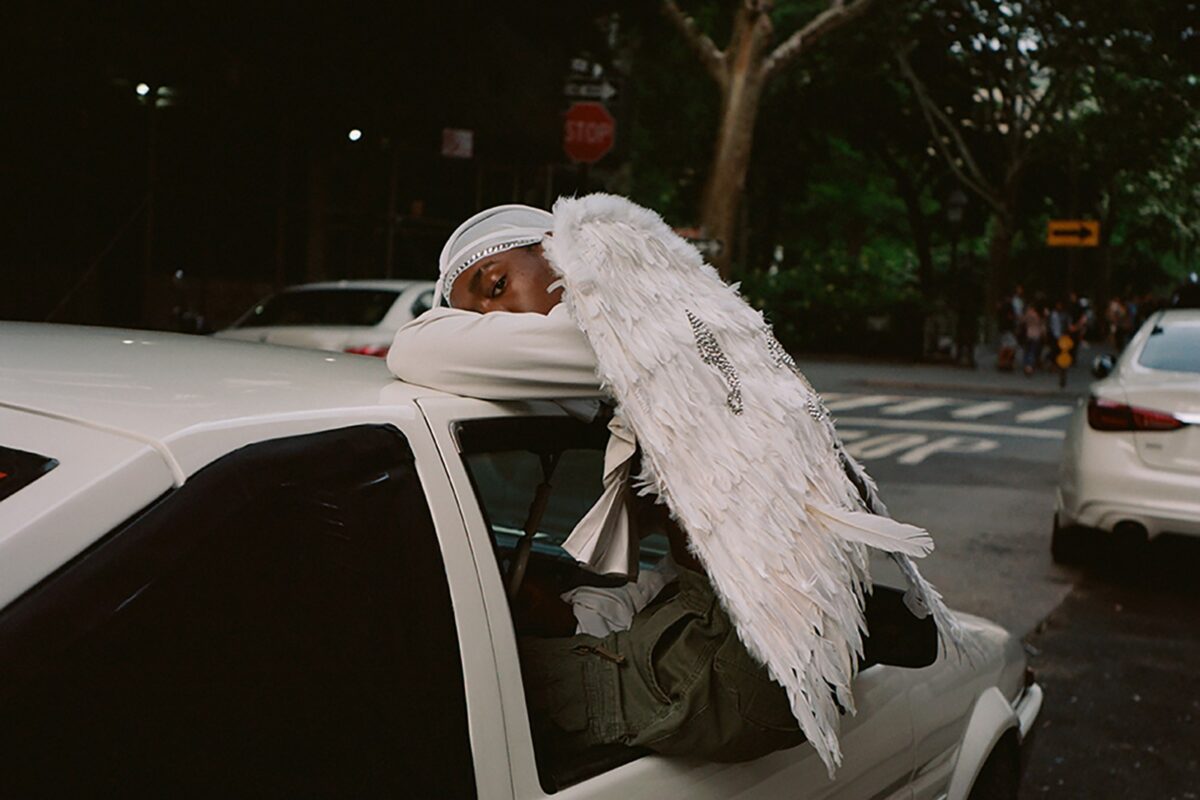SAMUEL HYLAND
When Malcolm X was incarcerated in 1946, he channeled a freshly acquired love for literature to join the prison debate team. It was then that he learned the truth about Jesus Christ. He descended from the original Hebrews having settled in Jerusalem – a dark-skinned people – and America had rewritten the color of his skin to validate immoral race relations.
So much of history has been similarly white-washed, that the cover of Negro Swan almost comes off as a surprise. Yes – it’s a shock to see angelic wings, the ethereal, and even the mere idea of heaven juxtaposed with audacious melanin.
But that’s where Dev Hynes finds his niche. In 2016’s Freetown Sound, he impishly startles audiences with the rarely-commercialized image of candid black love, a hyper-staged, scantily clad juncture of two teenage bodies gracing the cover. On Negro Swan, a black angel adorned in white glares through the sleeve, side-eyed, at the consumer, as if to condemn him/her of the shock they must be feeling. Hynes finds amenity in shining a spotlight upon vantablack; he laughs when it bursts into flames.
LP number four sees African-American and LGBTQ communities placed under the microscope. In it’s initial press release, Hynes dubbed the record “an exploration of my own and many types of black depression, an honest look at the corners of black existence, and the ongoing anxieties of queer/people of color” — for the angel gracing it’s front, this three way intersection between depression, atonement, and rejuvenation serves as a holy trinity.
The quality of music is consistent. Each number is defined by a warming acoustic ambience, soft in sound, heavy in subject matter.
The majority of the theme, though, is not conveyed in the melodies themselves. Alternately, it is encased within the obscured voice that emerges in brief intervals of speech, fades in as the tracks fade out, and rises to prominence when the acoustics simmer down.
At the end of Runnin’, it narrates it’s way, barely above a whisper, through recurring experiences with a “faint, irritating, incessant buzzer.” “The first (time I heard it) was, was within myself,” it says. “Um, to stop pretending, To stop performing in ways that people wanted me to, to actually show up for myself, And to be myself.”
The opening seconds of Jewelry strike a similar chord. This time, the voice speaks of it’s favorite images, beginning with those of queer and black individuals not being welcomed into certain spaces.
“. . . Yet we walk in and we show all the way up.” Vindication grows exponentially with each sentence. “People try to put us down by saying ‘She’s doing the most,’ or ‘He’s way too much’.”
“ . . . But, like, why would we want to do the least?”
Doing the least is far from Hynes’ agenda. Combining his own lyrical prowess with the superstardom of acts like A$AP Rocky, Steve Lacy, and Puff Daddy, not only does he advocate for a lifestyle oft-dismissed, but he ensures that his insistence is not ignored.
Above all, Hynes’ resistance exists within simply being comfortable in his own skin – and that is something he proves to have no trouble with.

